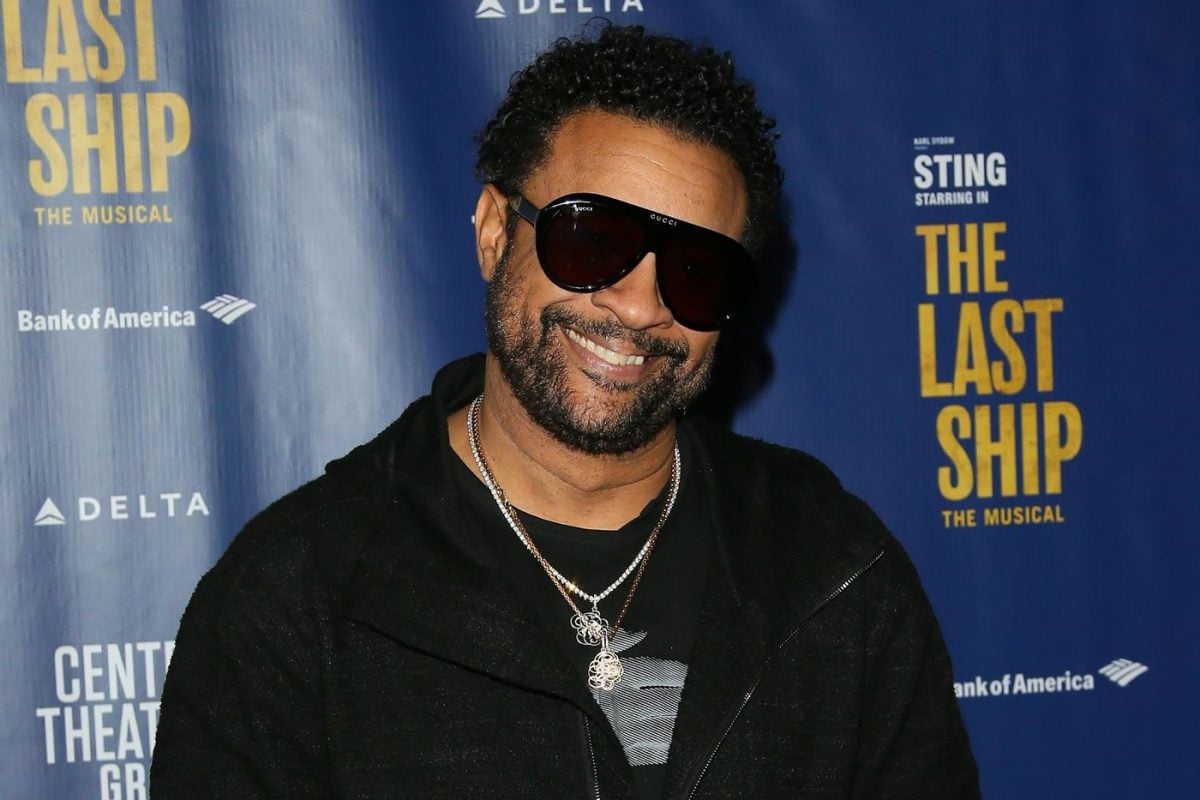Shaggy Reveals He Was Bothered By Criticism That Hit Songs Were ‘Too Crossover, Corny’

Dancehall superstar Shaggy says it was simply a matter of survival when he opted to do what some considered were ‘sell-out and watered-down’ pop hits in the early 2000s. The platinum-selling Jamaican artist admitted that the criticism bothered him to the point where he “left pop music and went back into Dancehall” for more ‘authentic’ songs.
Shaggy, 52, dished that he “wanted to do a hybrid style of music,” while speaking about his 2001 crossover hits It Wasn’t Me and Angel with Billboard, in an interview published yesterday. Billboard, this week, listed It Wasn’t Me and No Doubt’s Hey Baby featuring Bounty Killer among their 100 greatest songs of that year.
“When the great Bob Marley was doing his music, he was criticized for not doing authentic reggae,” Shaggy began. “He literally had session musicians play over rock sounds. It was just so ironic that today those very recordings are now the blueprint of what reggae is.”
He continued, “If you listen to everybody that’s making music today, like Popcaan and all of these guys, it’s literally the same thing. It just means we were ahead of our time. I just had the balls to take the chances, and didn’t listen to the criticism.”
The jabs from critics included the notion that Dancehall songs like It Wasn’t Me were too corny, but Shaggy says he figured out early that he needed numbers in order to get ahead at the international label, MCA Records, where he was signed at the time.
“A lot of them just didn’t realize that it was survival. I figured it out early by being [signed] to these record companies, that if we didn’t make numbers, we weren’t going to get ahead.”
However, the singer admitted that the mounting criticism did eventually get his attention. “It used to bother me to a point where I actually left pop music and went back into dancehall because of what people were saying: ‘He’s soft’ or ‘He’s too crossover,'” he revealed.
With the criticism on his mind, Shaggy released Church Heathen in 2007 with guest vocals and an appearance in the video from hardcore deejay Ninjaman, as the first single from his Intoxication album. “I definitely hit them like a storm because they didn’t expect it. It was just massive in Jamaica,” he said.
“So I was really back in the core [of dancehall] and people actually started to rock back with some of my older stuff,” he continued. “But I didn’t like the pay grade, so I went back to pop music.”
Making Dancehall For A Pop Audience
Shaggy explained a bit of his formula for crossover success, particularly the interpolation of mainstream songs, Juice Newton’s Angel of the Morning and Steve Miller Band’s The Joker into Angel.
“We came in as the underdogs. We were from this little island with music that people don’t understand,” he began. “There’s no program director at a radio station who is going to be like, ‘Let’s play the reggae record. [Laughs] How does that fit with our nice, beautiful pop audience that we have here?'”
“So that’s why the samples were so important because they had the elements of that crossover thing to make them say, ‘Okay, maybe it could work because they sampled Juice Newton.'”
Angel was No. 1 in 12 countries including the US, where it peaked atop the Billboard Hot 100 and stayed on the chart for 28 weeks.
On making the other timeless hit record, It Wasn’t Me, Shaggy also explained that it was a balancing act. “I’m from Kingston, so I know how to talk real Patois. I would mix it with the Queen’s English, but I’d use dancehall melodies and the flows.”
“When you have a chorus that’s so English, you have to go to dancehall to bring the authenticity back,” he said. “So they might not understand it very well, but they know the flow is so dope.”
The song, which featured vocals from Rikrok, is Shaggy’s other highest-charting and biggest selling single, with multiple platinum certifications in several countries.
Shaggy’s Intoxication album was followed by the single For Your Eyez Only (2010) with Jamaican singer Alaine. The Shaggy & Friends and the “summer follow-up” Summer In Kingston albums were later released under his own labels in 2011.
By 2012, he was back to pop sampling; this time Cyndi Lauper’s Girls Just Want to Have Fun for his collaboration with American rapper Eve titled Girls Just Wanna Have Fun , which found chart success in Europe.
